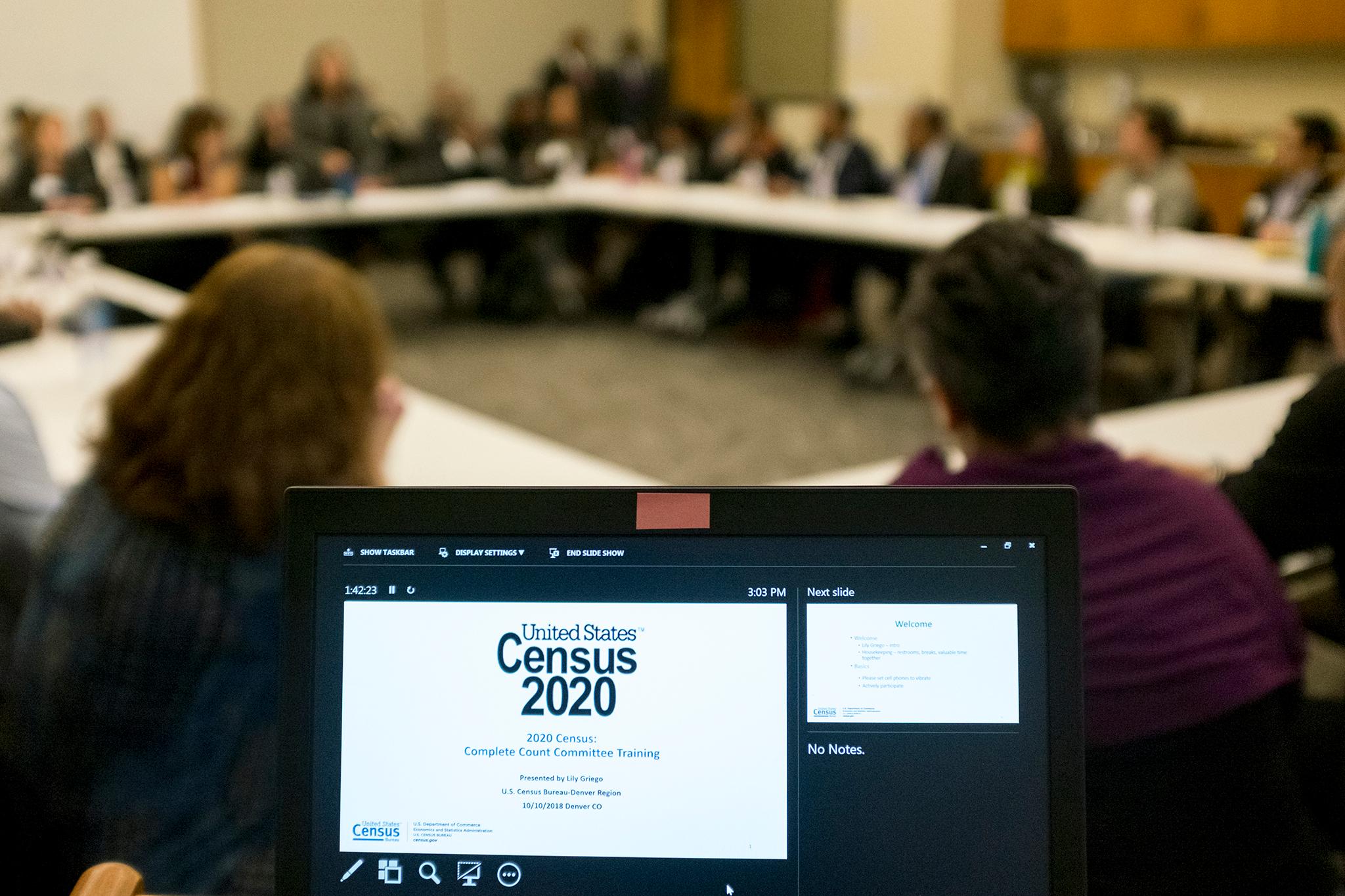You're worth $1,481.
According to a George Washington University study, that's how much each state loses per person in federal funding, annually, for every individual overlooked during the once-a-decade United States Census. If 500 toddlers fly under the radar, Coloradans are out $7.4 million over 10 years for things like street fixes and preschools.
That's one of two reasons a group of 50 or so volunteers known as the Denver Complete Count Committee gathered at the Blair-Caldwell African American Research Library in Five Points on Wednesday to strategize for the spring 2020 headcount.
The other reason? Colorado could gain power in Congress with an eighth congressional seat, assuming enough people have moved here in the last 10 years.
And assuming an accurate count. The Trump administration's bid to place a citizenship question on the census form could sap participation for a survey that already suffers from government distrust.
"We found out during the 2010 census that there was a tremendous need for education on why the census matters," said Lily Griego, a partnership specialist with the United States Census Bureau. "We're seeing a decrease in trust in the federal government."
Griego is training the volunteers, who she hopes will lend credibility to the constitutionally mandated process between now and census time. People will be more likely to fill out the form "if they hear about its importance from someone that they know ... if they hear it from their tía down the street," she said.
Undocumented residents can't get in trouble for taking the census, even if the citizenship question makes it to the form, according to City Councilwoman Debbie Ortega, who chairs the committee.
"None of the personal data is ever shared with any of the agencies, including the president himself," Ortega said. "They will not know who lives at what address so that [Immigration and Naturalization Services] or anyone else can go after them."
Colorado is one of several states trying to block that question through the courts. Regardless, the White House will only see aggregated data come September 2020, according to Griego.
The Complete Count Committee is about more than combating distrust -- it's about motivating anyone and everyone to participate with the lure of more federal funding ($8 billion per year in Colorado, according to the GWU study) and more representation in Washington, which the Washington Post deems likely. The committee has -- yes -- subcommittees that will market the census to every corner of the city: students, construction workers, businesses, people experiencing homelessness, religious groups and on down the line.
"It's critically important that everyone in this city feels confident, comfortable, and safe in saying, "Yes, I'm here and I want to be counted," said Mayor Michael Hancock, who dropped in on the meeting.
On the bright side, participating should be easier than ever in 2020. Denverites and everyone else will be able to submit answers online and phone them in for the first time starting March 23 -- a week before the typical census day, April 1.













